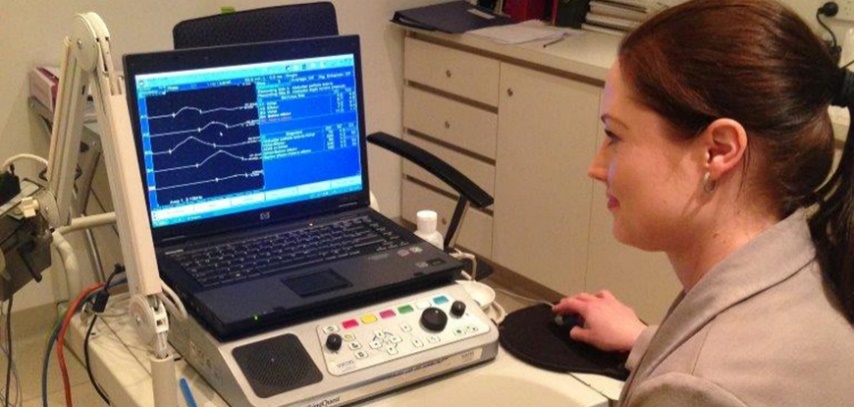
Sydney Neurology offers a full range of nerve and muscle diagnostic tests. These include tests for carpal tunnel syndrome, neuropathy, muscle disorders and myasthenia gravis. Reports are generally available on the day of testing
Nerve conduction studies and EMG (electromyography) are special tests performed by our Neurologists and neurophysiologists. Their purpose is to determine whether a patient’s nerves and muscles are functioning properly. By placing small electrodes on the skin (and occasionally a tiny needle in muscles), a neurologist can examine the electrical properties of both nerves and muscles. This test is invaluable for picking up damage and dysfunction that cannot be detected through routine neurological examination.
In the hands of a well-trained and experienced electromyographer it is straightforward, easily tolerated, and very useful. Please let the doctor know if you have a pacemaker or are on warfarin prior to the test.
What Should I Bring to My Appointment?
Your doctor should provide you with a referral letter to bring with you on the day of your appointment requesting the test(s) to be performed. If you have been referred for a full neurological consultation as well as a nerve conduction test please mention this to the receptionist when booking your appointment. The length of time required for the nerve conduction test will depend on exactly what type of study you require but you should expect to be here for approximately 1 hour. After the test has been performed your results will be forwarded directly to your doctor or if you wish you can take a copy for yourself.
Please DO NOT apply body lotion or moisturizer to hands, arms or legs on the day of the test.
Why Do I Need Nerve Conduction Studies?
Nerve conduction studies and EMG are useful in the diagnosis of:
- Carpal tunnel syndrome
- Neuropathies
- Muscle disorders
- Neuromuscular junction disorders such as myasthenia gravis
- Radiculopathy (nerve root damage)
- Motor neurone disease